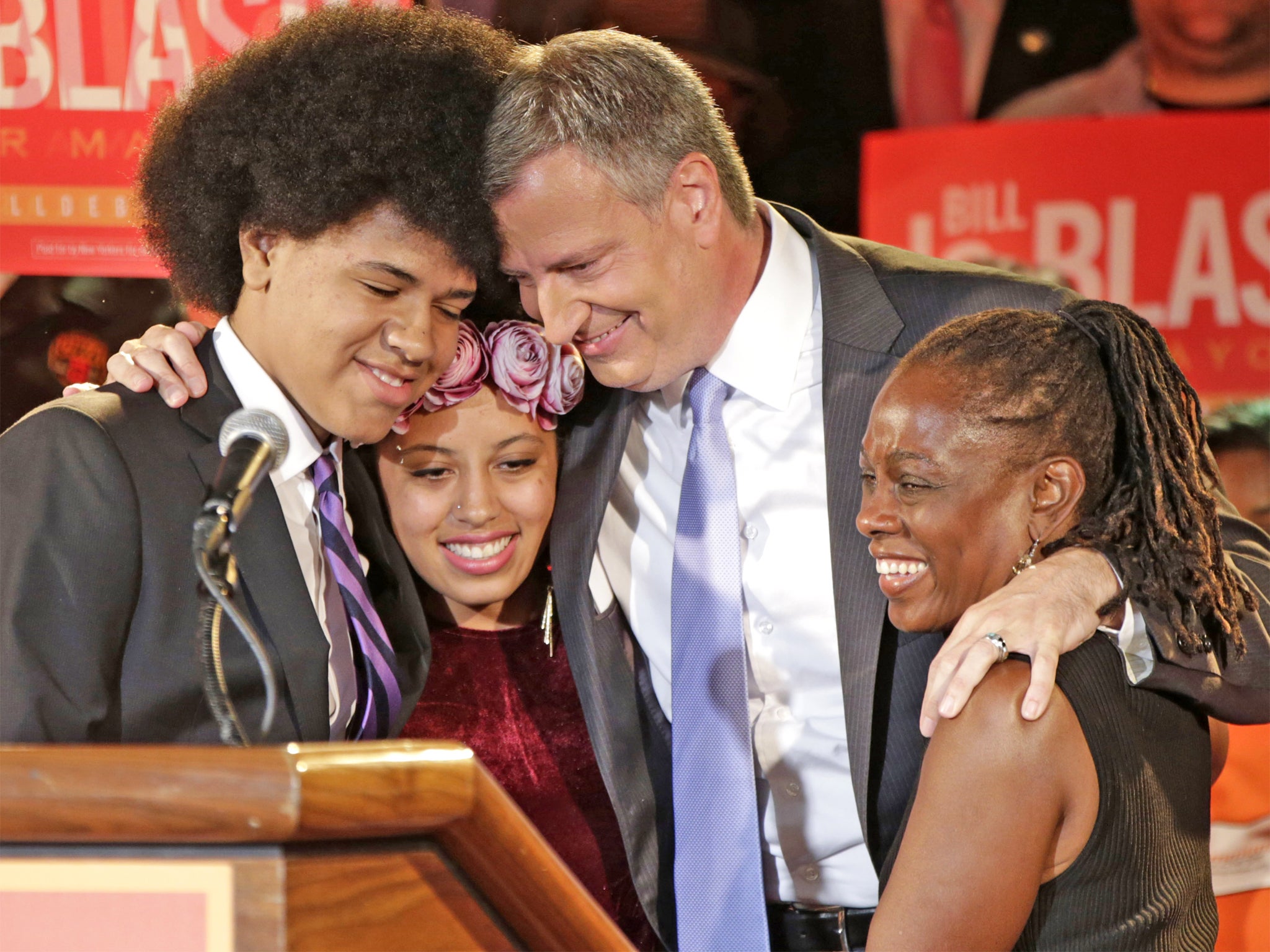Race for New York Mayor’s office sees Bill De Blasio edging it
Democrat wins mayoral primary with enough support to avoid a run-off

Democratic voters in New York have put Bill de Blasio, the city’s public advocate who had been languishing in fourth place in the opinion polls, on the cusp of outright victory in the party’s primary elections, with early results indicating that he might have enough support to avoid a run-off.
Given the sway of the Democrats in the nation’s largest city, a clear mandate from the party faithful is expected to win Mr de Blasio the keys to City Hall when the incumbent, Michael Bloomberg, steps down at the end of the year.
The Democratic nominee will face the Republican candidate, Joe Lhota, a former senior transportation official who won his party’s primary on Tuesday, in November.
To secure the party’s nomination without going through a run-off, Mr de Blasio needs over 40 per cent of the vote from the Democratic primaries. Preliminary results show him with 40.12 per cent of the vote, just over the threshold and well ahead of his nearest rival, Bill Thompson, the city’s comptroller, who has around 26 per cent of the vote.
City election officials will recount the ballots today, after the Mayoral race paused today in remembrance of the terrorist attacks in downtown Manhattan on 11 September, 2001. Additionally, around 19,000 absentee and military ballots will be added to produce the finally tally next week.
Given the wafer-thin margin between outright victory for Mr de Blasio and a run-off between him and Mr Thompson, the additional votes could influence the result either way.
On Tuesday night, as his lead became apparent, Mr de Blasio, the most liberal of the candidates, reiterated his campaign message: a break from the Bloomberg era during which, he says, the city turned a blind eye to the travails of its poorest and most marginalised citizens.
Calling his bid for City Hall an “unapologetically progressive alternative” to the way the city has been run by the billionaire Mayor, he said: “Settling for the status quo isn’t just too small. It’s a risk we as a city cannot afford to take.” On the stage, he was flanked by members of his mixed-race family, who have played a key role on the trail and in campaign ads.
Meanwhile, for Anthony Weiner and Elliot Spitzer, former Democratic party stars whose careers were undone by scandal and who had pinned their comeback hopes on these elections, the results were disappointing.
When Mr Weiner launched his campaign for City Hall, he seemed to be winning over New Yorkers with the message that he had learnt from his downfall, having been forced to resign from Congress after admitting that he had sent lewd pictures of himself over Twitter. But new revelations about his online conduct after his exit from Washington eventually proved too much for voters to swallow. The result: figures showed that a mere 5 per cent of Democratic votes had pulled the lever in his favour.
Mr Spitzer had targeted the more modest office of comptroller, hoping that memories of his tenure as state attorney general, when he became a national figure for going after Wall Street’s mightiest, would sway voters. But throughout the campaign, his rival for the party’s nomination, Scott Stringer, repeatedly reminded New Yorkers of a different chapter from Mr Spitzer’s past: his resignation as state governor after he was embroiled in a prostitution scandal. In the end, some 52 per cent backed Mr Stringer, the current Manhattan borough president, against around 48 per cent for Mr Spitzer.
Speaking on Tuesday night, Mr Spitzer said: “I am proud to have run a campaign over the past nine weeks that many thought was incapable to mount. We did it in a way that made me proud to revisit the issues we fought for when I was attorney general and governor, to lay out an agenda of what we believed was right for this great city.”
Join our commenting forum
Join thought-provoking conversations, follow other Independent readers and see their replies
Comments
Bookmark popover
Removed from bookmarks